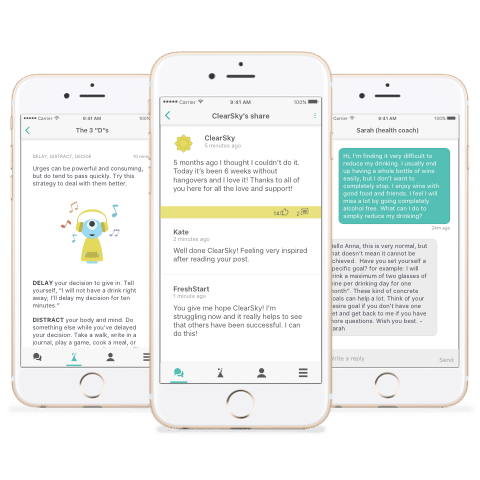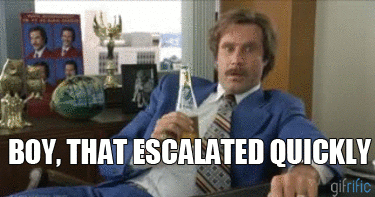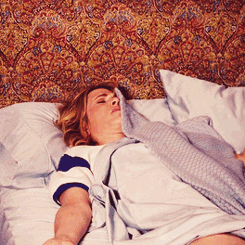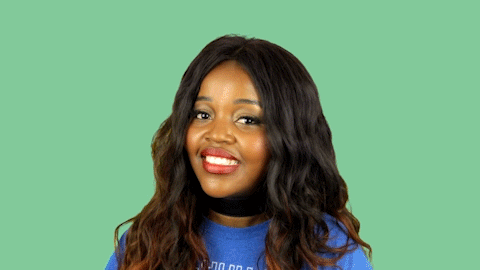Returning home after a trip around the world has taught me something valuable about self-love. It’s a busy world, and you’ll feel overwhelmed if you don’t know how to communicate with yourself and listen to your needs. Culture means to be connected, but sometimes we lose contact with ourselves when we search for a connection with others. Sometimes you realise that you have never been connected to yourself.
My teenage and young adult years were extremely fun and extremely horrible at the same time. I needed alcohol to feel okay with who I was. Without being drunk I didn’t really allow myself to have fun, and I always wanted to have fun. For me, it wasn’t like I felt great and thought a drink or two could make me feel even better. I felt out of place, lost, unwanted, stiff, and stressed-out unless I was drunk. I couldn’t see the fun in doing things without drinking, and anything was fun if I could only be drunk doing it.
Strangely enough, it wasn’t like I felt great drinking, either. Once I started I only felt content if I had a new drink in my hand or knew that I had access to more. I rarely enjoyed the moment; I only chased getting drunker. And drunker I got, but not happier.
It felt like someone had sucked the soul out of me whenever I woke up from my drunkenness. Days after drinking I still felt like I would never be able to experience joy again.
Why did I allow myself to drink every week if I knew I would feel so rotten for so many days after?
Alcohol was a part of who I believed I was. I didn’t know who I could be without it. I didn’t know how to have fun without alcohol. Honestly, I thought that a life without alcohol wasn’t worth living. Partying was all that kept me searching for more. I didn’t even care what party I went to, as long as it meant that I could get drunk.
As a 27-year-old woman who has been through a lot of psychologists, self-help books, podcasts, and treatments, I know that I have a lot of knowledge and inspiration to share with the world. Sharing is good for those who are struggling themselves and also for parents, teachers and other people related to someone who is struggling. It opens up a gateway through which people can relate, understand and then offer help.
This is why I wrote the book, Free The Girl – A story about (finding) self-love,
and share my experiences with feeling like shit. Our minds are scared of change–that’s why it is hard to break habits–but change is just one decision away.
Hot tips for self-love
If alcohol affects you negatively, here are my tips on self-love and how to work with yourself.
To get a grasp of your own relationship with alcohol, ask yourself, ‘Why do I drink?’. If you answer ‘because it tastes good’ then ask yourself if you would choose a non-alcoholic drink if it tasted exactly the same. If not, then why do you drink?
The point of answering this question is to be truthful with yourself. Our brains love to make up excuses for why we do things, but if you ask yourself and really listen in, you often feel the real truth inside.
If you would like to take a break from drinking but it feels like a long stretch, set a reasonable goal. Start with one month if two feels overwhelming. Put the month into a bigger perspective: what is 30 days of your life without alcohol, really? Isn’t it worth giving your body, liver and head a little rest? A month just to check in and see if you feel different, maybe even better than you currently do. Aren’t you curious about how much energy you might get? Wouldn’t it be great to look back and celebrate that you could do it? At the end of the day, it is just a test to see if your life can improve.
Prepare for your time off alcohol and make a list of things to do instead:
- Write a list of positive outcomes. What will you get out of taking a break? Put your list on your fridge and read it every time things get hard.
- Check if someone wants to do it with you. In that case, you can hang out together if all your other friends are out clubbing. Or you can both go out with your friends if you feel like you’ll be okay not drinking.
- What did you use to do when you were younger, before you started drinking? Is there a hobby you have benched?
- Visit your grandparents or other relatives that you don’t see often
- Catch up on your reading
- Use this time to really pamper yourself. Eat healthy food, get outdoors for some natural sunlight, go to bed on time – view it as a spring clean-out!
If you need more inspiration to get this list going, try to put on a seven-minute timer and write down anything that comes to mind that makes you lose track of time or that you simply enjoy doing.
The most important thing is to be kind to yourself.
Speak to yourself like you would speak to your child or best friend. Cut yourself some slack! Keep in mind that it is okay to not always feel amazing. Allow your mind and body to just be, and say to yourself that it is okay. Right now, what I feel is what I feel, how I am is how I am – and right now, that is okay. Life is so much more than we can describe it in words. Follow your interests, follow your happiness and don’t limit yourself to what you know!
Maya Kiusalaas | www.mymondaylove.com










